Dutch sex workers were allowed to go back to work at the start of July, after four months off the job. Many had been eagerly awaiting the day, having struggled to pay rent and bills during the closure of Amsterdam's famous red light district, known locally as De Wallen.
During the first few months of the pandemic, sex workers who rent windows qualified for government aid. But escorts and others working in sex clubs missed out, meaning a large portion of sex workers in Amsterdam haven’t seen a pay cheque in months. It’s because they work under the Netherlands’ so-called "opt-in" regulation, which means workers aren’t considered freelance or employed with benefits, but do pay taxes. For them, the reopening of De Wallen signifies some light at the end of a very long tunnel.
"I screamed with joy when I heard we could go back to work,” said Foxxy, sex worker and spokesperson for Amsterdam's sex worker advocacy organisation, PROUD, who worked in the red light district for years, but now sees customers in her own home.
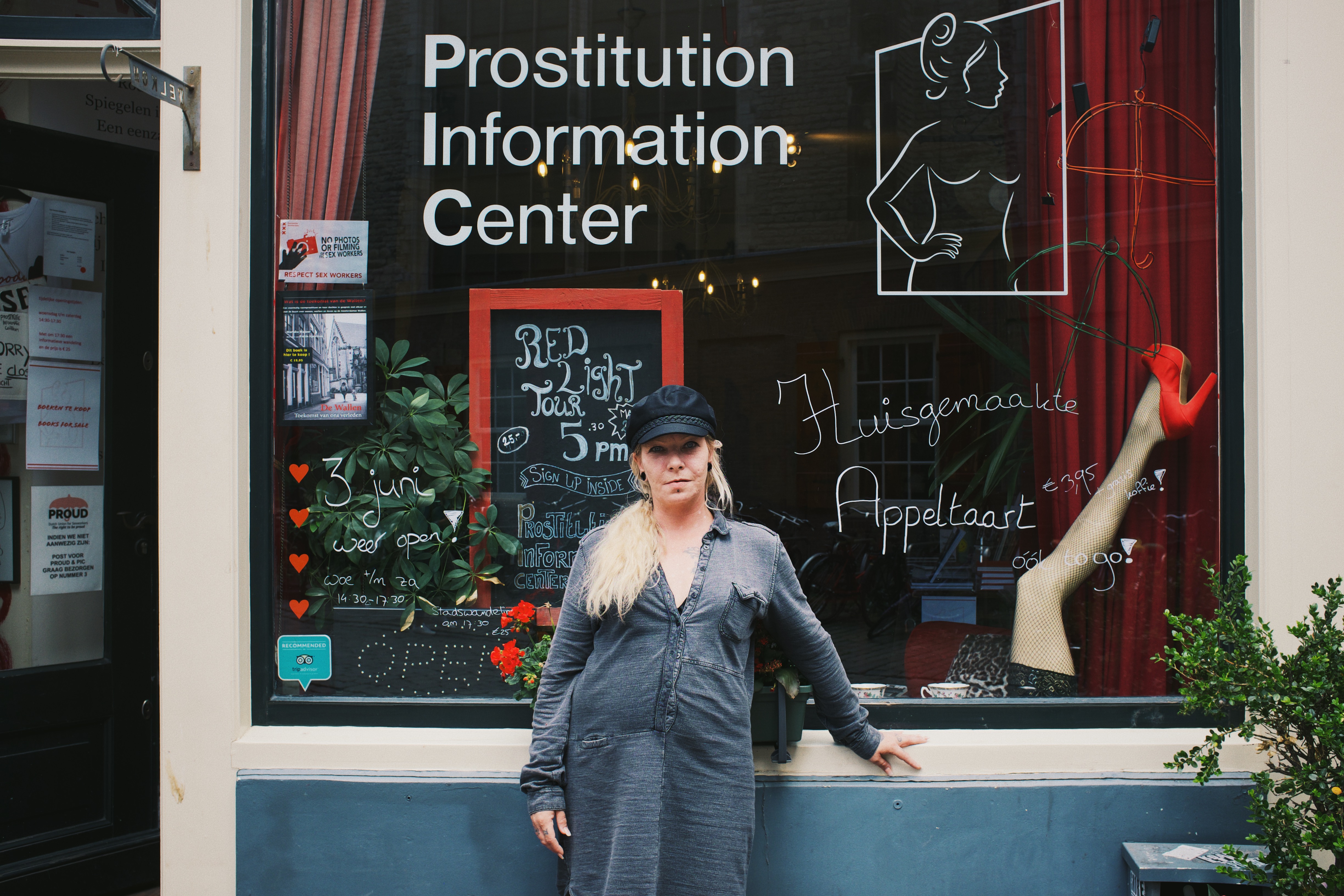
Despite the excitement, De Wallen – which is normally swarming with tourists this time of year – isn't busy yet. "We were allowed to go back to work with a week's notice, which was unexpected," said Foxxy. "Lots of sex workers needed time to prepare: they wanted to get their hair and nails done, they didn’t have a room lined up to work from."
Most will have to wait for their customer base to slowly make their way back – but not all. “For some women, that first night was the most lucrative night they’ve ever had,” said Foxxy. “Only a few windows were open, so any customer who showed up went to see those workers.”
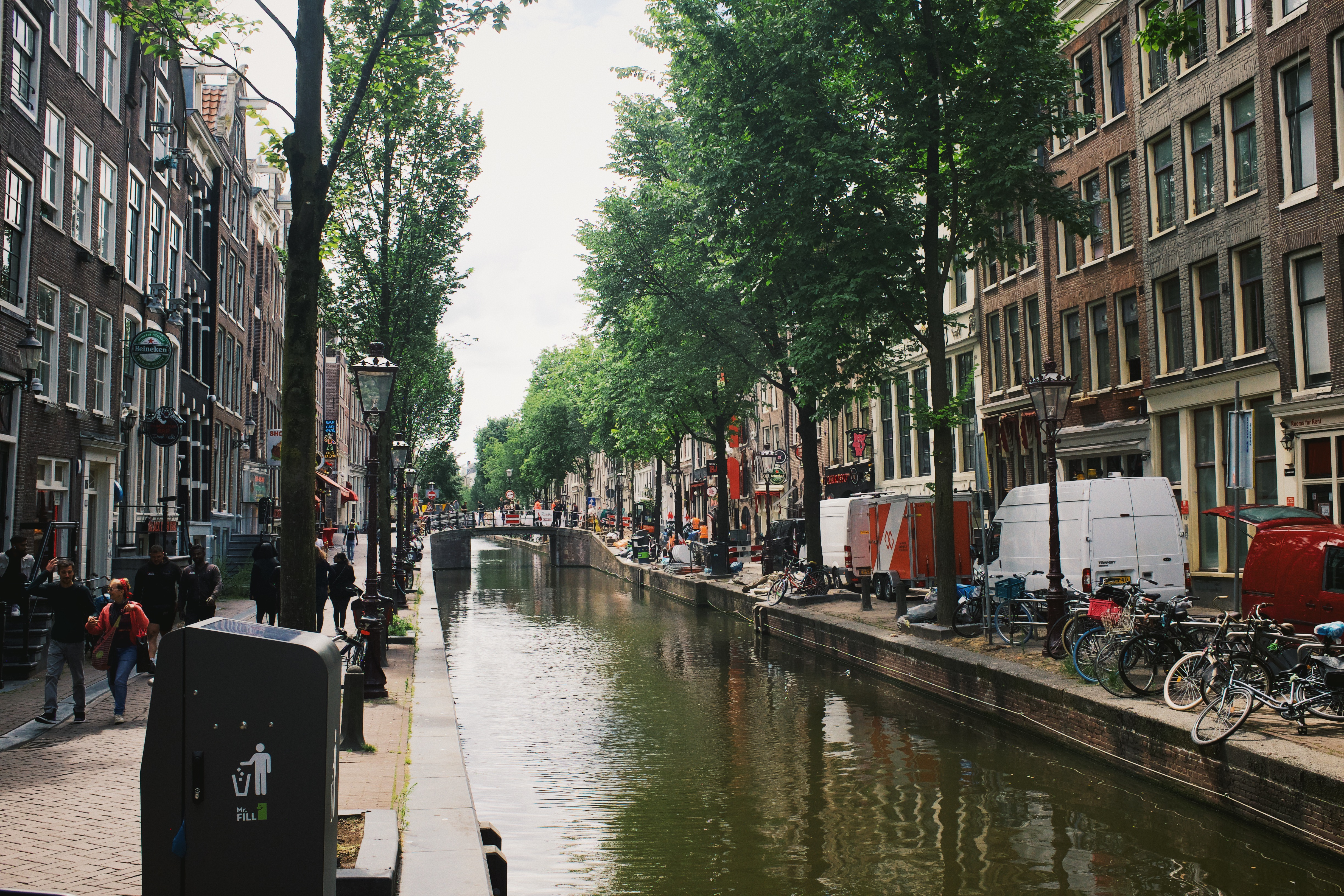
Pim van Burk has also witnessed the slow restart. He manages My Red Light, an organisation that rents out rooms to sex workers, while also making sure they can do their job safely.
“Compared to before the pandemic, about half as many rooms are being rented out [by sex workers] at night. During the day, we're renting almost the same amount as before,” Van Burk said. “It’s difficult to predict how things will turn out. Lots of our renters from Eastern Europe need to first get on a plane back to the Netherlands.”
According to Van Burk, consumer behaviour is also fuelling the uncertainty. “Some of the customers were so excited that they came back to the red light district right away. But when you look at Belgium, you see that the first few days were busy, but since then it’s slowed down because tourism has slowed to a halt.”
De Wallen also relies heavily on tourists, and they haven’t returned to pre-pandemic numbers. Foxxy said she feels conflicted. “Most tourists, like Germans and Brits, come from countries where the [coronavirus] numbers aren’t great right now. I don’t think it’s safe to allow them in yet. I do hope that [local] customers who would normally avoid the city centre because it’s too busy come to the De Wallen now.”
Anna* is a sex worker in the red light district. She’s relieved to be back at work and is taking precautions to keep both herself and her customers safe. The small table in her work space holds a bottle of Yakult and a small package of crackers, plus a bag of face masks, disinfectant and an infrared thermometer she's invested in to test visitors for a fever. "Yesterday, a customer measured 36.5 degrees Celsius when they entered. When we were done, it was 36.7,” she laughed.
To minimise risk, Anna currently only has sex with customers doggy style. “As soon as a customer comes in, he and I wash our hands together,” she explained. She also asks all of her customers to wear a mask. She said some of her customers ask her to do the same.
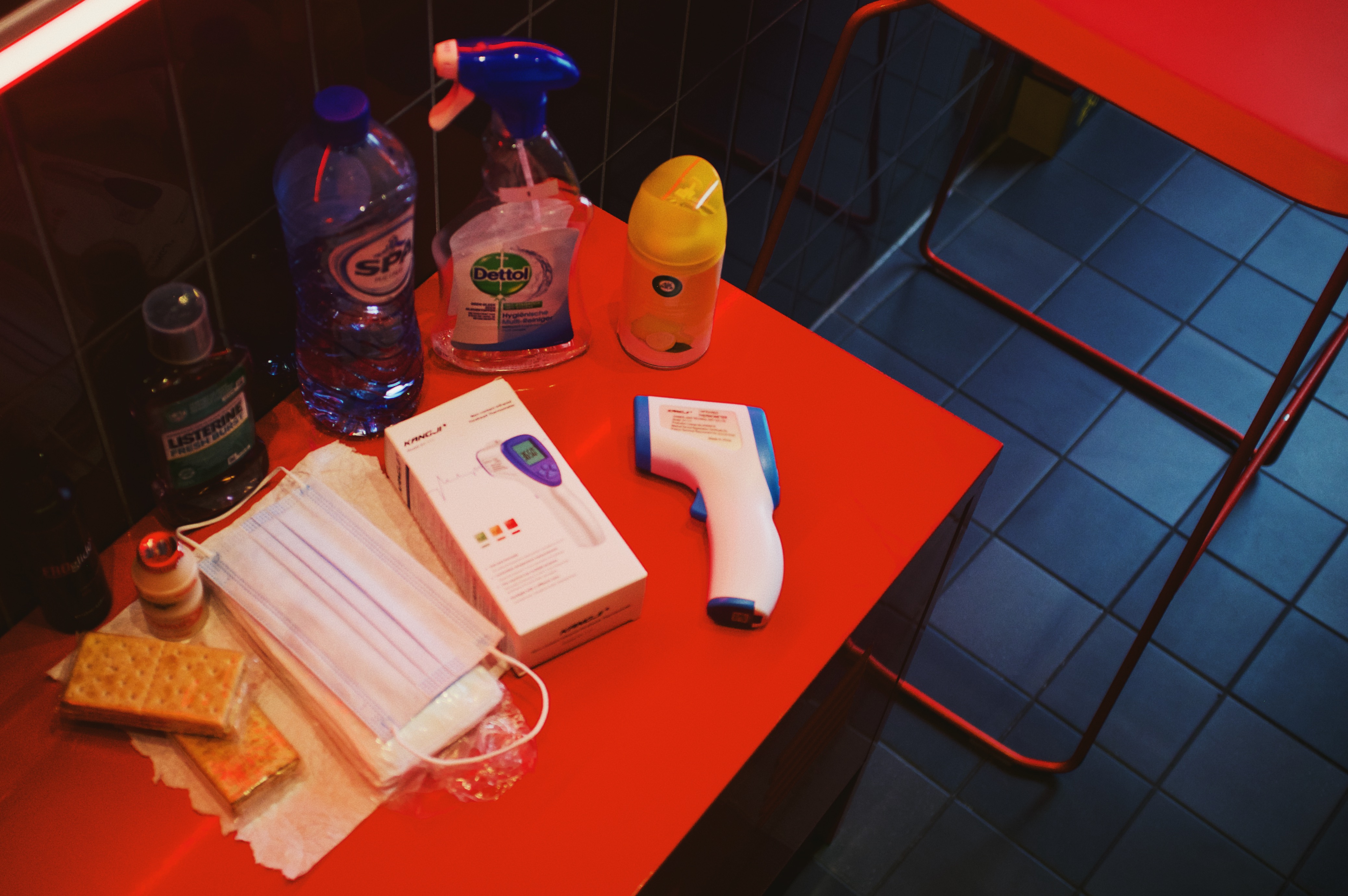
My Red Light's Van Burk explained that the Dutch national health institute, RIVM, has introduced tailored protocols for sex workers during the pandemic. He’s printed them off and put them on the door of every room, so workers can go through the steps with each customer: “First, they ask about their client’s health. If someone is sick, they have to refuse service.”
The women also have to wash their hands after every interaction, while anything the customer has touched is cleaned thoroughly afterwards. But disinfecting has always been a mainstay in these rooms. Face masks are also available in the rooms Van Burk rents out, but neither sex workers nor customers are legally required to wear them.
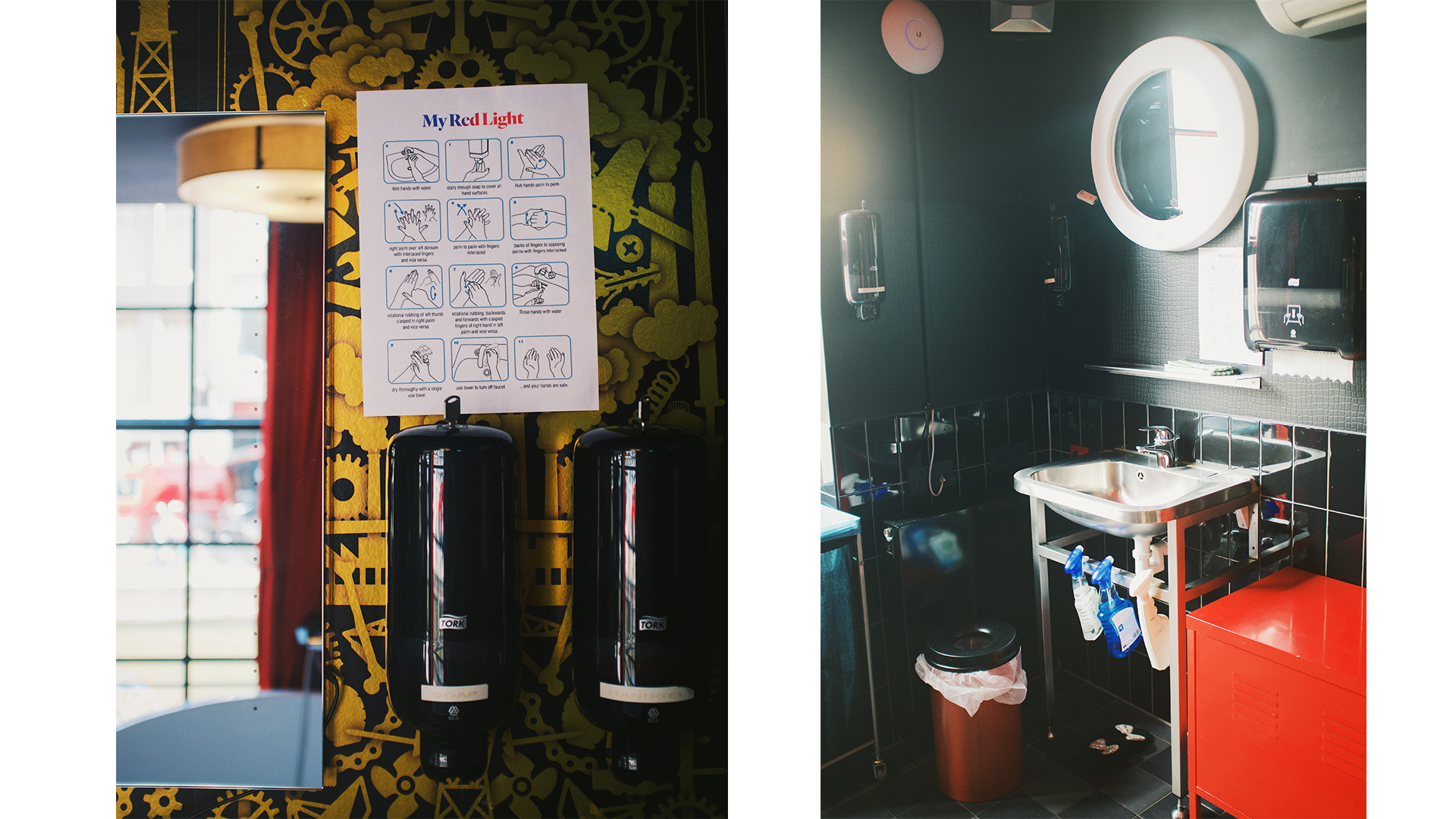
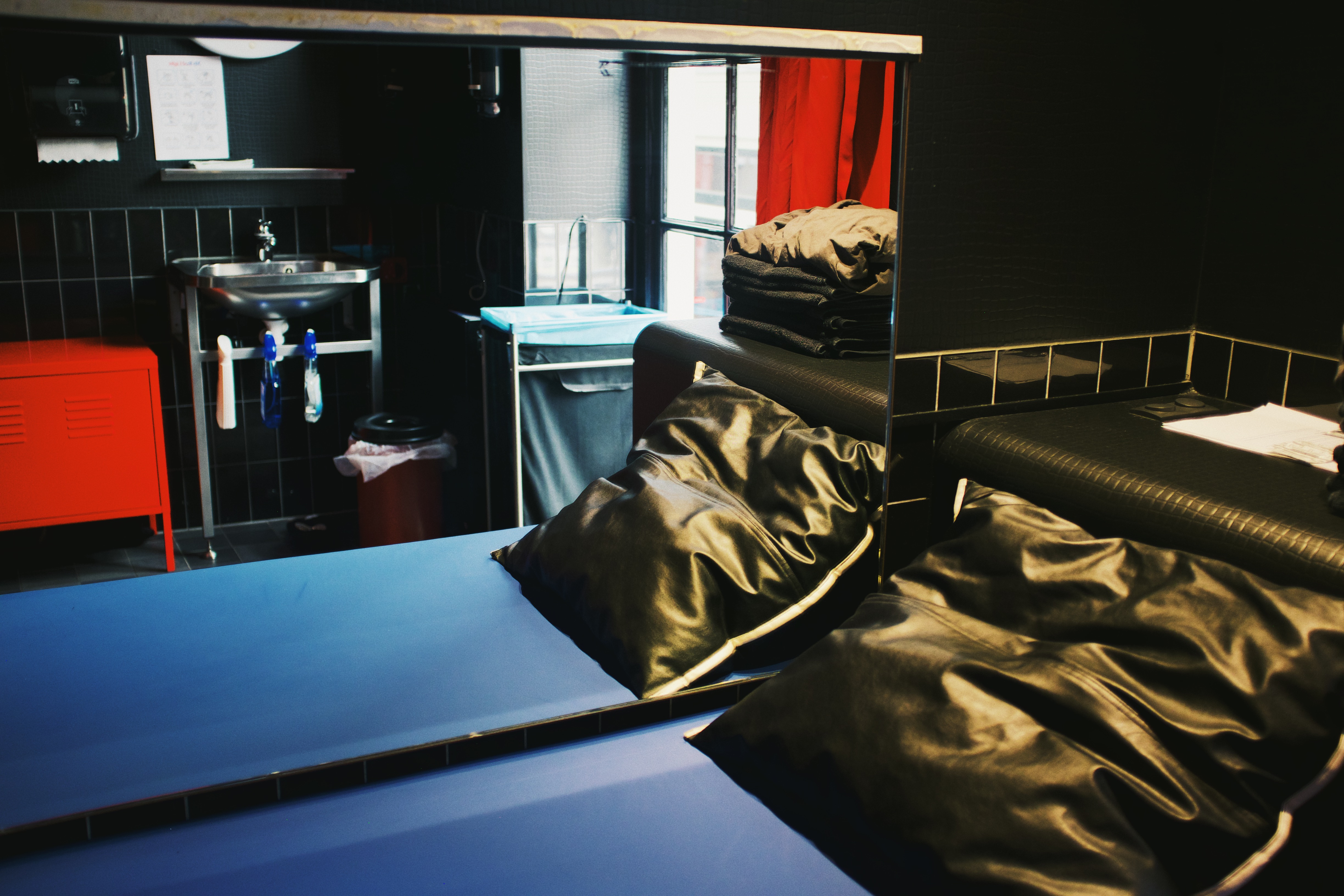
In Belgium, the government has banned sex workers and their clients from certain sex positions for the time being. But here, anything is fair game as long as there’s no kissing or breathing into each other’s faces.
"We’ve also decided to discontinue the use of our bath tubs, because that seems unsafe to me,” Van Burk said. Showering after seeing a customer isn’t a legal requirement, and Van Burk won’t ask renters to do so. “If you have to shower after each customer, you might end up showering 80 times a week. That’s terrible for your skin and overall health,” he said. “And often it’s not even necessary: the towel on each bed is replaced in between customers. Blow jobs are the most popular service in the red light district. It’s always been very clean around here."
Though sex workers’ rooms might currently be among the cleanest spaces in the city centre, the new safety measures have created issues. “Some [sex] clubs can’t reopen, because they can’t guarantee one-and-a-half metre's distance,” Foxxy said. Both clubs and sex workers are also now required to record the names and numbers of their customers. Foxxy said this violates customer privacy.
But the bigger problem, she said, is the future of Amsterdam’s red light district. Sex workers have fought the local government for years on plans to close De Wallen. The pandemic, and the ensuing financial hardship for the area, could kick those plans into high gear. “Amsterdam was formed around this area," argued Foxxy. "The red light district is the beating heart of the city. I hope they won’t use corona as an excuse to ban sex work from taking place here.”
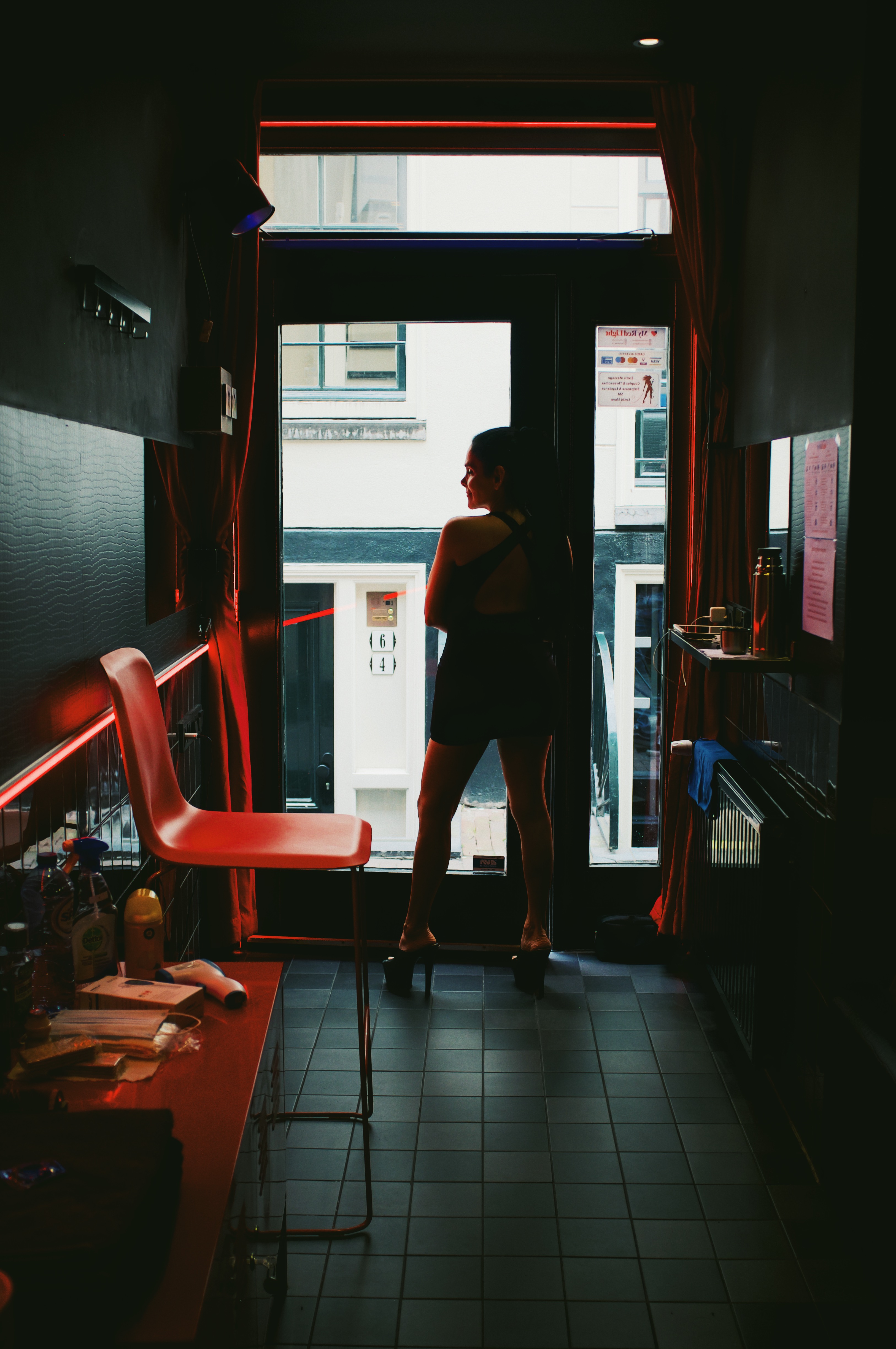
*Name changed
from VICE https://ift.tt/2ZgnRl1
via cheap web hosting
No comments:
Post a Comment